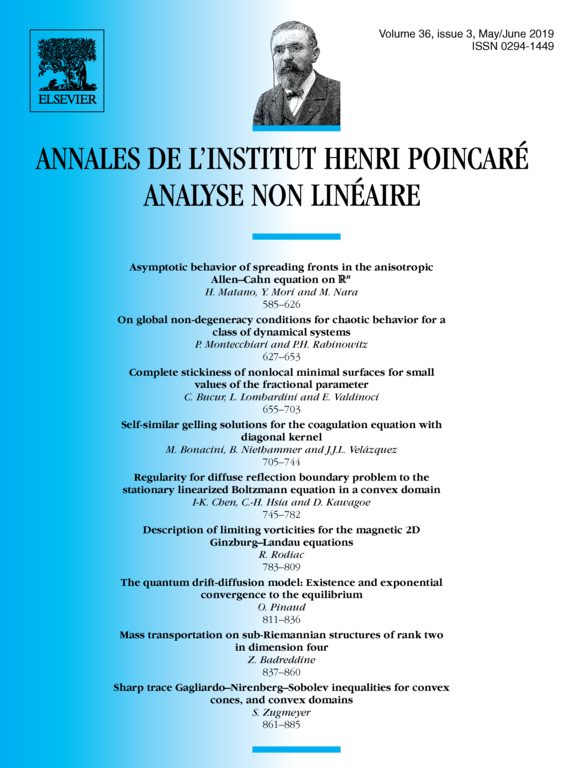The quantum drift-diffusion model: Existence and exponential convergence to the equilibrium
Olivier Pinaud
Department of Mathematics, Colorado State University, Fort Collins CO, 80523, USA

Abstract
This work is devoted to the analysis of the quantum drift-diffusion model derived by Degond et al. in [7]. The model is obtained as the diffusive limit of the quantum Liouville–BGK equation, where the collision term is defined after a local quantum statistical equilibrium. The corner stone of the model is the closure relation between the density and the current, which is nonlinear and nonlocal, and is the main source of the mathematical difficulties. The question of the existence of solutions has been open since the derivation of the model, and we provide here a first result in a one-dimensional periodic setting. The proof is based on an approximation argument, and exploits some properties of the minimizers of an appropriate quantum free energy. We investigate as well the long time behavior, and show that the solutions converge exponentially fast to the equilibrium. This is done by deriving a non-commutative logarithmic Sobolev inequality for the local quantum statistical equilibrium.
Cite this article
Olivier Pinaud, The quantum drift-diffusion model: Existence and exponential convergence to the equilibrium. Ann. Inst. H. Poincaré Anal. Non Linéaire 36 (2019), no. 3, pp. 811–836
DOI 10.1016/J.ANIHPC.2018.10.002